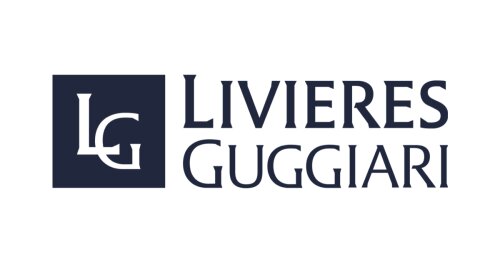Best Mining Law Lawyers in Paraguay
Share your needs with us, get contacted by law firms.
Free. Takes 2 min.
Or refine your search by selecting a city:
List of the best lawyers in Paraguay
About Mining Law in Paraguay
Mining Law in Paraguay refers to the body of regulations and statutes governing the exploration, extraction, and commercialization of mineral resources within the country. Paraguay is rich in minerals and has specific laws guiding how these resources can be discovered, claimed, exploited, and marketed. The legal framework aims to ensure sustainable development, economic growth, environmental protection, and fair use of natural resources. Mining activities in Paraguay are overseen by governmental bodies that enforce compliance, issue permits, and regulate foreign and local investments in the sector.
Why You May Need a Lawyer
Navigating Mining Law in Paraguay can be challenging due to its technical requirements and regulatory obligations. You may need a mining lawyer in several scenarios, such as:
- Applying for exploration or extraction permits
- Negotiating mining contracts or joint ventures
- Understanding investment rules for foreign stakeholders
- Ensuring compliance with safety and environmental regulations
- Resolving disputes over land rights or mineral ownership
- Handling administrative procedures with government agencies
- Advising on export regulations for minerals
- Assisting with tax planning and royalty payments
- Guiding mergers or acquisitions in the mining sector
- Responding to claims of environmental damage or community impact
A qualified legal professional can help safeguard your interests, minimize risks, and ensure your project complies with Paraguay’s mining laws.
Local Laws Overview
Paraguayan Mining Law is governed primarily by the Mining Code (Ley 318/71 and its amendments) and related regulations. Key aspects include the following:
- Permits and Concessions: Mining activities require permits or concessions, which are granted by the national government for exploration and exploitation phases. Applications must meet detailed requirements and can involve environmental and social impact assessments.
- Ownership: The state retains ultimate ownership of subsoil mineral resources. Private individuals or companies can gain the right to exploit these resources through concessions, but do not own them outright.
- Foreign Investment: Foreign investors are allowed to participate in mining activities with the same rights as local companies, subject to specific regulations and authorization processes.
- Environmental Regulation: There are strict obligations to minimize environmental impact, restore land after mining operations, and meet national standards for pollution, waste, and water usage.
- Taxes and Royalties: Mining operations are subject to royalties, fees, and taxes. The exact amounts and calculation methods are set by law and depend on the type and value of minerals extracted.
- Community Relations: Consultations with affected communities, especially indigenous populations, may be required before mining permissions are granted.
- Health and Safety: Mining companies must comply with national standards for worker safety, reporting incidents and using proper equipment.
- Export Controls: Exporting minerals is regulated, and permits are needed for cross-border trade.
Frequently Asked Questions
What is required to obtain a mining concession in Paraguay?
You must submit an application to the Ministry of Public Works and Communications, provide technical and financial documentation, conduct impact studies, and fulfill any other administrative requirements established by law.
Are foreign companies allowed to participate in mining activities?
Yes, foreign individuals and companies can obtain mining rights under the same conditions as Paraguayans, although all applicants must comply with national legal procedures and regulations.
How long does a mining concession last?
Concession durations depend on the type of minerals and project scope. Typically, exploration permits are shorter, while exploitation concessions can be granted for up to 20 years, with potential for renewal.
What taxes or royalties must miners pay?
Miners in Paraguay pay royalties based on the volume and value of minerals extracted, as well as standard corporate taxes, value added tax, and possible local fees. Specific rates vary depending on the mineral type.
What environmental obligations exist for mining companies?
Mining projects must comply with environmental impact assessment requirements, pollution control standards, land restoration, and monitoring measures throughout and after mining activities.
Can mining concessions be transferred or sold?
Yes, mining rights can generally be transferred or sold to another eligible party; however, government approval is required for such transactions.
Are there special rules for mining on indigenous or communal land?
Yes, special consultations and agreements may be required when mining activities could impact indigenous territories or communal lands. Protection of community rights is a legal priority.
What happens if a mining company breaches environmental regulations?
The company may face fines, permit suspension or revocation, legal actions, or even criminal charges depending on the severity and consequences of the violation.
Is artisanal or small-scale mining regulated?
Yes, artisanal and small-scale mining falls under specific regulatory regimes aimed at encouraging formalization, safety, and environmental compliance.
How can disputes about mining rights be resolved?
Disputes can be resolved through administrative appeals, judicial litigation, or alternative dispute resolution mechanisms such as arbitration, depending on the nature of the conflict.
Additional Resources
If you need more information or assistance, the following resources can be helpful:
- Ministry of Public Works and Communications (Ministerio de Obras Públicas y Comunicaciones - MOPC): The main governmental body responsible for mining permits and regulation.
- National Directorate of Mining (Dirección Nacional de Minas y Energía): Responsible for technical evaluations and oversight.
- Paraguayan Chamber of Mines (Cámara Paraguaya de Minas): Industry association with resources for mining companies and investors.
- Ministry of Environment and Sustainable Development (MADES): Regulating environmental compliance in mining activities.
- Professional legal associations: Lists of attorneys specialized in mining and natural resources law.
Next Steps
If you require legal assistance regarding mining activities in Paraguay, consider the following steps:
- Identify and document your specific needs or concerns related to mining law.
- Consult with a reputable lawyer or law firm experienced in Paraguayan mining law.
- Prepare all relevant documents including contracts, permits, and correspondence with authorities.
- Seek preliminary legal advice to understand your rights, obligations, and options.
- If proceeding with an application or dispute, your lawyer will guide you through each stage, ensuring compliance with all relevant laws and regulations.
- Continue to monitor legal and regulatory developments that may affect your mining activities.
Engaging an expert early in the process can help avoid complications and set your mining project up for long-term success in Paraguay’s dynamic resource sector.
Lawzana helps you find the best lawyers and law firms in Paraguay through a curated and pre-screened list of qualified legal professionals. Our platform offers rankings and detailed profiles of attorneys and law firms, allowing you to compare based on practice areas, including Mining Law, experience, and client feedback.
Each profile includes a description of the firm's areas of practice, client reviews, team members and partners, year of establishment, spoken languages, office locations, contact information, social media presence, and any published articles or resources. Most firms on our platform speak English and are experienced in both local and international legal matters.
Get a quote from top-rated law firms in Paraguay — quickly, securely, and without unnecessary hassle.
Disclaimer:
The information provided on this page is for general informational purposes only and does not constitute legal advice. While we strive to ensure the accuracy and relevance of the content, legal information may change over time, and interpretations of the law can vary. You should always consult with a qualified legal professional for advice specific to your situation.
We disclaim all liability for actions taken or not taken based on the content of this page. If you believe any information is incorrect or outdated, please contact us, and we will review and update it where appropriate.
Browse mining law law firms by city in Paraguay
Refine your search by selecting a city.









